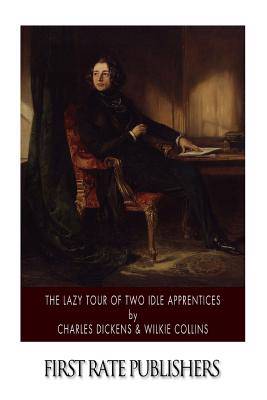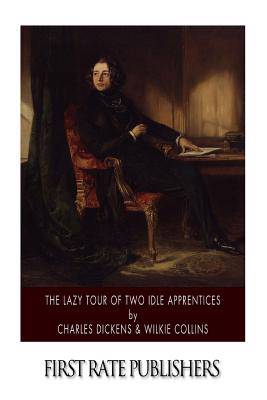
- Afhalen na 1 uur in een winkel met voorraad
- Gratis thuislevering in België vanaf € 30
- Ruim aanbod met 7 miljoen producten
- Afhalen na 1 uur in een winkel met voorraad
- Gratis thuislevering in België vanaf € 30
- Ruim aanbod met 7 miljoen producten
Zoeken
€ 10,45
+ 20 punten
Uitvoering
Omschrijving
Charles Dickens needs no formal introduction, having been the most popular English writer of the 19th century and still one of the most popular writers in history today. Dickens' upbringing was a mixture of happy times and sad: when he recalled his father being sent to debtor's prison in his memoirs, his tears actually left marks on the page. Nevertheless, Dickens was obsessed with reading, making him a natural journalist by the age of 20, when he began a career in journalism. Along the way, he also began writing his own short stories and materials, often serializing them in monthly installments in publications, a popular method of publishing in the 19th century. Unlike most writers, Dickens would not write an entire story before it began its serialization, allowing him to work on the fly and leave plot lines up in the air with each opportunity. By the time he died at the relatively young age of 58 from a stroke, he was already Europe's most famous writer. His obituary noted that Dickens was a "sympathizer with the poor, the suffering, and the oppressed." Dickens was interred in Westminster Abbey, a rare honor bestowed only among the greatest and most accomplished Britons. Many of Dickens' novels were written with the concept of social reform in mind, and Dickens' work was often praised for its realism, comic genius and unique personalities. At the same time, however, Dickens' ability as a writer was nearly unrivaled, with his ability to write in prose unquestioned and unmatched.
Specificaties
Betrokkenen
- Auteur(s):
- Uitgeverij:
Inhoud
- Aantal bladzijden:
- 80
- Taal:
- Engels
Eigenschappen
- Productcode (EAN):
- 9781502358318
- Verschijningsdatum:
- 13/09/2014
- Uitvoering:
- Paperback
- Formaat:
- Trade paperback (VS)
- Afmetingen:
- 152 mm x 229 mm
- Gewicht:
- 117 g

Alleen bij Standaard Boekhandel
+ 20 punten op je klantenkaart van Standaard Boekhandel
Beoordelingen
We publiceren alleen reviews die voldoen aan de voorwaarden voor reviews. Bekijk onze voorwaarden voor reviews.











